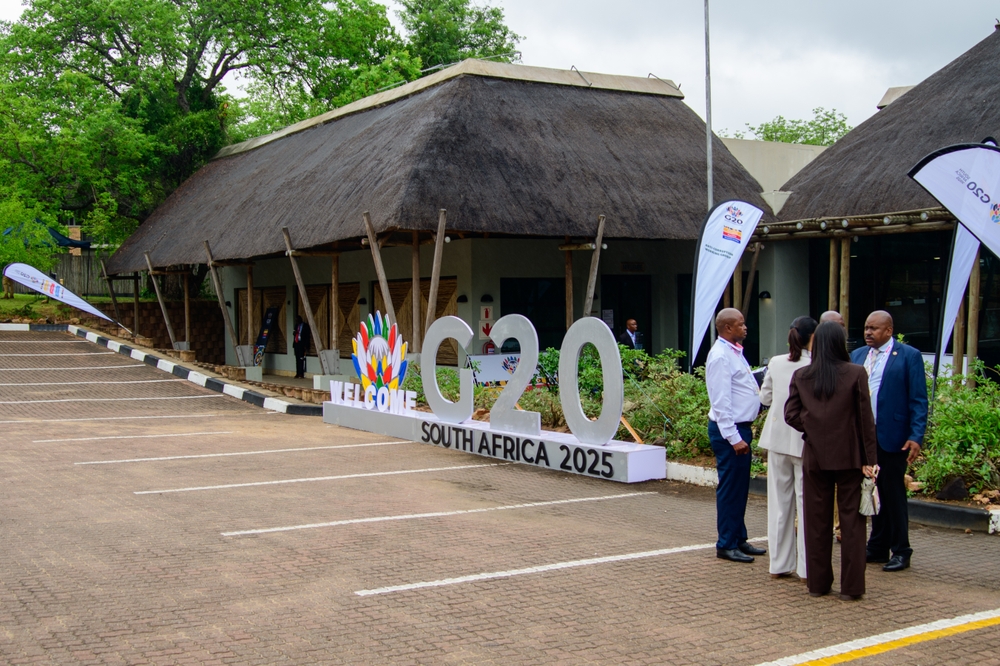Activists from anti-capitalist, climate, women’s rights, and anti-migrant groups plan protests highlighting poverty and inequality.
South African police and army displayed force on Wednesday using helicopters, motorcycles, and K-9 units ahead of G20 demonstrations.
Officials deployed 3,500 additional police and put the army on standby under the National Joint Operational and Intelligence Structure.
Lieutenant General Tebello Mosikili told reporters that authorities expect protests in Johannesburg and other major cities.
She stated that citizens can exercise their right to protest but must follow the law.
Police designated specific zones near the summit venue for protesters to gather, close to the country’s largest soccer stadium.
Airports Company South Africa installed “speakers’ corners” in major airports where security will guide demonstrators if they protest.
An Afrikaner trade union sparked debate by erecting billboards calling South Africa the “most race-regulated country in the world.”
City officials removed one billboard, and the union Solidarity threatened legal action in response.
The billboards reference affirmative action laws and have caused tension between South Africa and the United States.
President Donald Trump will boycott the summit, citing alleged anti-white policies and persecution of Afrikaners.
Authorities and experts widely reject Trump’s claims, but the boycott risks undermining the first African G20 summit.
Women for Change urges a national shutdown on Friday, the day before the summit, to protest high femicide rates.
The group demands women avoid work, stating that South Africa cannot claim growth while women die every 2.5 hours.
An anti-immigration group will protest unemployment and poverty, highlighting South Africa’s 31% jobless rate.
Climate and inequality groups will hold an alternative summit in Johannesburg starting Thursday, criticizing the G20 as catering to the rich.
Security and City Preparations
Johannesburg authorities began extensive clean-up and repairs ahead of the summit to fix decaying infrastructure.
President Cyril Ramaphosa joined workers in Soweto last week, performing repairs near the summit location.
Residents question the benefit of spending millions on a two-day summit while streets, lights, and services remain broken.
Johannesburg resident Lerato Lelusa said the summit mostly wastes money and does not help ordinary citizens.
Global Diplomacy Arrives
The two-day summit opens Saturday, attracting leaders and senior diplomats from over 40 countries.
Major global institutions, including the United Nations, World Bank, IMF, and WTO, will attend the gathering.
Protests, security measures, and civic preparations are all shaping the stage for Africa’s first G20 summit.



